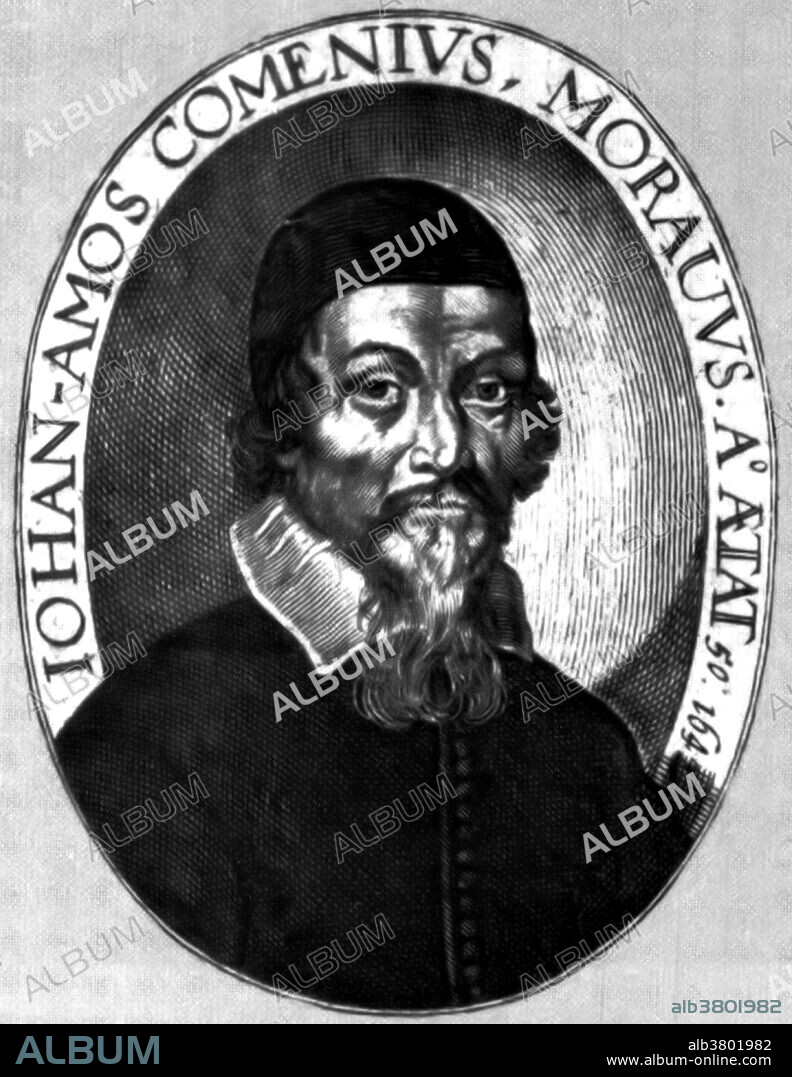alb3801982
Johann Amos Comenius, Czech Educator

|
Zu einem anderen Lightbox hinzufügen |
|
Zu einem anderen Lightbox hinzufügen |



Haben Sie bereits ein Konto? Anmelden
Sie haben kein Konto? Registrieren
Dieses Bild kaufen.
Nutzung auswählen:

Titel:
Johann Amos Comenius, Czech Educator
Untertitel:
Siehe automatische Übersetzung
Johann Amos Comenius (March 28, 1592 - November 15, 1670) was a Czech teacher, educator and writer. He believed humans are born with a natural craving for knowledge. In his Didactica Magna (Great Didactic), he outlined a system of schools that is the exact counterpart of the existing American system of kindergarten, elementary school, secondary school, college, and university. His influence on educational thought is comparable with that of his contemporaries, Bacon and Descartes, on science and philosophy. He wrote a series of textbooks all based on the same fundamental ideas: (1) learning foreign languages through the vernacular; (2) obtaining ideas through objects rather than words, (3) starting with objects most familiar to the child to introduce him to both the new language and the more remote world of objects, (4) giving the child a comprehensive knowledge of his environment, physical and social, as well as instruction in religious, moral, and classical subjects, (5) making the acquisition of knowledge a pleasure rather than a task, and (6) making instruction universal. He is considered the father of modern education. He died in 1670 at the age of 78.
Bildnachweis:
Album / LOC/Science Source
Freigaben (Releases):
Bildgröße:
3600 x 4655 px | 47.9 MB
Druckgröße:
30.5 x 39.4 cm | 12.0 x 15.5 in (300 dpi)
Schlüsselwörter:
BERÜHMT • BERÜHMTE PERSÖNLICHKEIT • ERZIEHER • ERZIEHERIN • EUROPAEER (F M) • EUROPAEER • EUROPÄER (F M) • EUROPÄER • EUROPÄISCH • ILLUSTRATION • ILLUSTRATIONS • MANN • NOTABEL • PERSON • PERSöNLICHKEITEN • PERSÖNLICHKEITEN • PORTRAIT • PROMINENZ • TSCHECHISCH


 Pinterest
Pinterest Twitter
Twitter Facebook
Facebook Link kopieren
Link kopieren Email
Email
